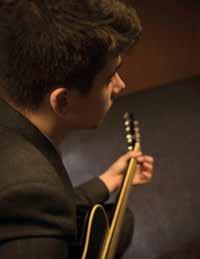
2 minute read
Media Studies
2021-2023 Specification: Head of Department: Cambridge International A Level Media Studies 9607 Mr Marcus Milburn
Who should study this course?
Advertisement
Anyone who has an interest in how the media operates will find this course rewarding. The combination of theoretical, analytical and practical work allows pupils a certain degree of flexibility to choose topics of interest to them and discover areas of expertise. Those who enjoy working as part of a team will relish the opportunity to collaborate with others in creative coursework tasks.
Entry requirements
It would be beneficial for any prospective media studies candidate to have gained at least grade 5 at English language at GCSE. This will aid engagement with the exam material. It would also be beneficial for a candidate to have a good grade in a subject with practical elements (Art, DET etc) as the course contains project-based assessment.
What will I be studying?
The A Level specifications in Media Studies offer breadth and depth of study with conceptually organised content. Although they focus on critical debates and selected theories introduced at GCSE, there is no requirement for pupils to have previously studied the subject before embarking on the course. It is important to note that the A Level course requires detailed academic writing, which is a useful skill to develop for higher education.
The course is broken up into four units; each of which is worth 25% of the overall A Level grade. Two of the units are practical media portfolios, called ‘Foundation Portfolio’ and ‘Advanced Portfolio’ respectively, where film openings and music videos will be produced. The third unit is entitled ‘Media Texts and Contexts’ where pupils will learn how to deconstruct moving images and explore how media products are used by institutions to construct different representations and how media audiences interpret these products.
The final unit is called ‘Critical Perspectives’ where learners will engage in critical debates around topics such as contemporary media regulation, post-modernism and media ecology.
How will I be assessed?
Over the course of two years, pupils will complete two coursework portfolios and, in Year 13, will sit two two-hour exams assessing the content studied in lessons. All coursework tasks and examinations are weighted equally, each contributing 25% towards the final grade.
What next?
Universities offer numerous media-related courses. Courses cover specific topic areas such as Film Studies, whilst other courses will cover a broader spectrum. There are many practical courses where pupils can learn specific media skills. This provides an ideal route into the media and film industries. The growing development of digital media also means that the majority of companies will have connections to some form of media.









